Horiatiki, also known as Greek salad, is a famous appetizer and side dish in Greece. Greek salad is a rainbow of colors from the Mediterranean: ruby-red tomatoes, emerald-green cucumber, velvety black olives, and creamy white feta cheese. What a symphony for your palate and for your eyes!
This article will cover additional information on the definition and varieties of horiatiki, the needed tools and ingredients for preparing it at home, and must-know tips for preparing, storing, and serving it.
The key to unlocking one of the best Greek dishes is here!
The Basics of Horiatiki: A Traditional Greek Salad
Horiatiki (χωριάτικη σαλάτα or θερινή σαλάτα in Greek) is a traditional Greek salad recipe most readily available from spring to early fall when local vegetables are at their best. It is one of the best salads in Mediterranean cuisine. Its name is literally “village salad” or “peasant salad.”
As a great appetizer and side dish, horiatiki is often present at mezze (a style of dining with various small plates like tapas in the Middle East and Mediterranean). This prominent Greek dish boasts a refreshing flavor that goes well with many heavy dishes, making the summer heat bearable.
This globally famous salad has spawned many versions, many of which even Greeks can’t recognize. For example, the classic horiatiki doesn’t have lettuce or lemon juice, and it only uses large blocks of feta cheese, not cubed or crumbled feta.
What Are Some Popular Versions Of Greek Salads?
Here are well-liked horiatiki variations that I’d love to introduce to you:
In this post, I will aim for a mix of traditional and modern elements so that you can create horiatiki according to your liking.
What Are the Necessary Tools for Preparing Horiatiki?
Like all salads, horiatiki doesn’t need fancy equipment. These most basic tools are sufficient for it:
What Ingredients Are Vital to Make Greek Salad from Scratch?
Horiatiki calls for various Mediterranean vegetables, feta cheese, and several easy-to-find condiments. My recipe includes several ingredients not found in the Greek version of the salad; you can leave them out to get a closer taste of the original horiatiki.
Main Ingredients
Dressing and Seasonings:
Making Horiatiki: A Step-by-Step Guide
Whipping up horiatiki is child’s play: you only need to cut the vegetables, prepare the dressing, and mix them together. Here is how you can do it:
Step 1: Prepare the Vegetables
Rinse the onion, cucumber, and tomatoes carefully. Cut them into large chunks. If you include fresh parsley and lettuce, chop them coarsely.
Step 2: Prepare the Dressing
Add these ingredients to the container:
Mix and shake thoroughly.
Step 3: Assemble the Salad
In a bowl, combine the vegetables, olives, and dressing. Place the crumbled feta cheese on top. Garnish with additional olive oil and dried oregano.
Serve immediately.
Tips to Enhance the Flavor of Greek Salad
Here are the vital tips for perfect Greek salads:
What Is the Best Way to Store and Reheat Greek Salad?
The lettuce-free version of horiatiki can last in the fridge for a few days, but the best method is to store the cut vegetables, the feta cheese, and the dressing separately.
They can be refrigerated for about 3-4 days. Freezing them isn’t a good idea since it adversely affects the flavor and texture of the salad.
When reheating the dish, it isn’t necessary to reheat the vegetables, but you can microwave the dressing for 30 seconds before tossing it into the salad.
What Is Stopping You from Making Horiatiki (Greek Salad) Today?
Horiatiki is effortless to prepare, yet its flavor is absolutely fantastic. Horiatiki is a celebration of the sun-kissed flavors in the Mediterranean region that nobody should miss. Whether you’re into the authentic recipe or the popular version, horiatiki is always there to delight you with its diverse taste.
Feel free to tell me what you think about this salad in the comment section. Do you know other great Greek and Mediterranean recipes with seasonal produce? I’m eager to learn about them! And before you go, please share this post with your friends!
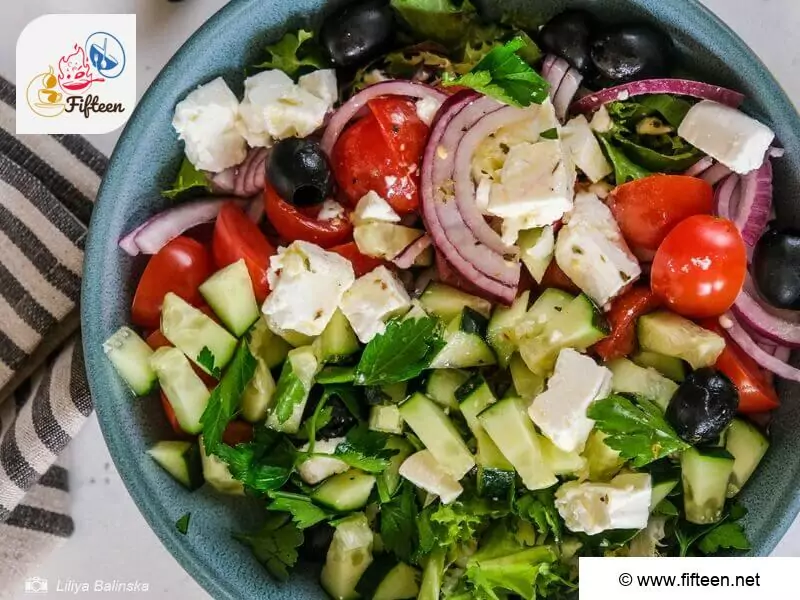
Horiatiki Recipe (Greek Salad)
Equipment
- Knife
- Chopping Board
- Small container
- Salad Spoon
Ingredients
- 0.5 cucumber sliced
- 0.5 red onion thinly sliced
- 1.6 ounces cherry tomatoes quartered
- 1 ounce feta cheese
- A dozen of black olives 1.4 ounces
- 1 cup of lettuce optional
- Fresh parsley optional
- 1 tablespoon olive oil
- 1 teaspoon apple cider vinegar
- 1 teaspoon Dijon mustard
- 1 teaspoon lemon juice optional
- 1 teaspoon black pepper
- 1 teaspoon dried oregano
- 1 teaspoon salt
Instructions
- Rinse the red onion, cucumber, and tomatoes carefully. Cut them into large chunks. If you include fresh parsley and lettuce, chop them coarsely.
- Add olive oil, vinegar, lemon juice, Dijon mustard, dried oregano, salt, and pepper to the container. Mix and shake thoroughly.
- In a bowl, combine the vegetables, olives, and dressing. Place the crumbled feta cheese on top.
- Garnish with additional olive oil and dried oregano. Serve immediately.
Video
Notes
- You can add protein-rich ingredients like grilled chicken or smoked tofu.
- To make the dish vegan, use tofu- or cashew cream-based substitutes for feta cheese.
- Don’t hesitate to add more vegetables, like caper berries, bell peppers, fresh fennel, or scallions.
- Nuts and seeds are great additions, such as pumpkin seeds, sunflower seeds, almonds, etc.


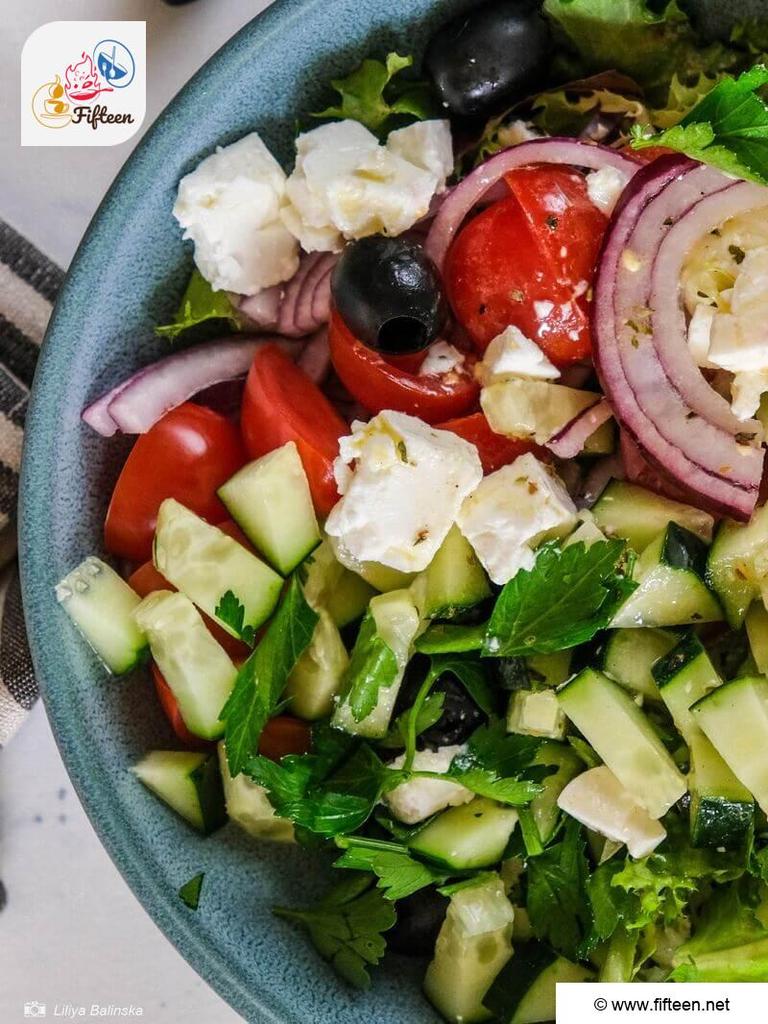
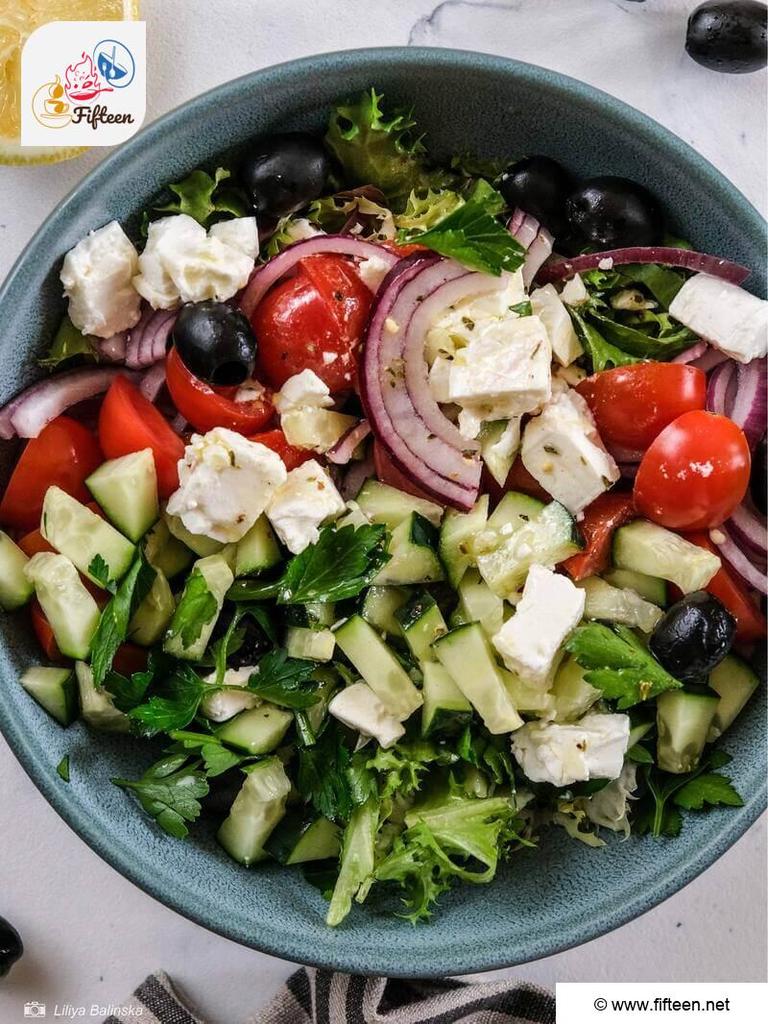
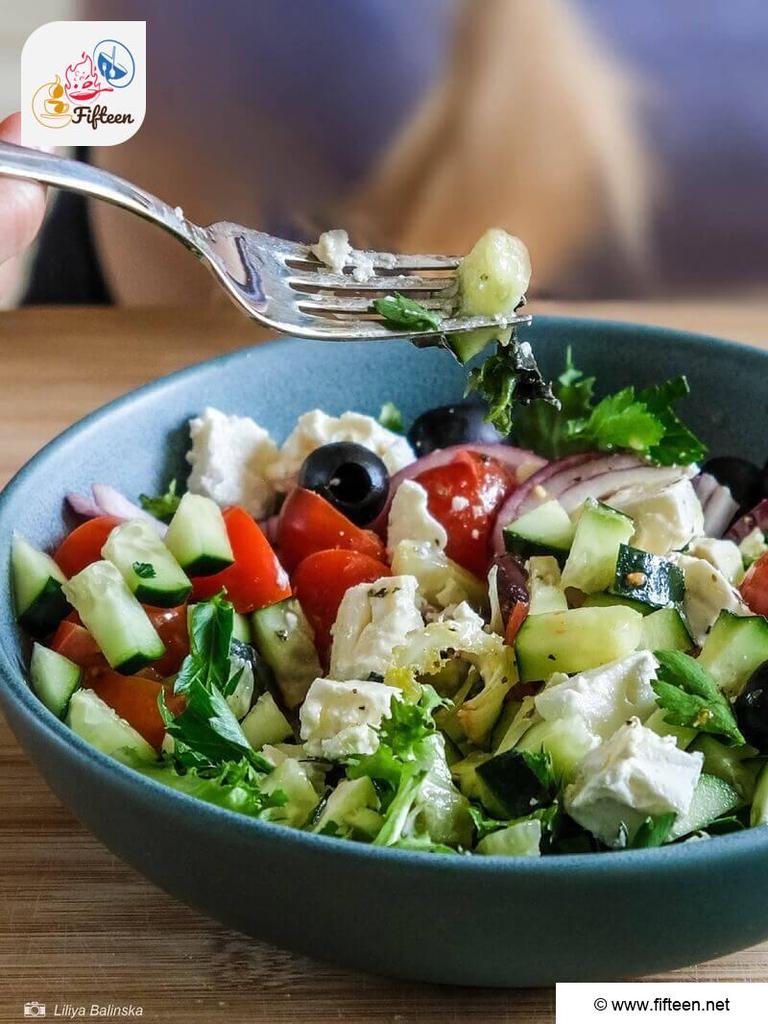

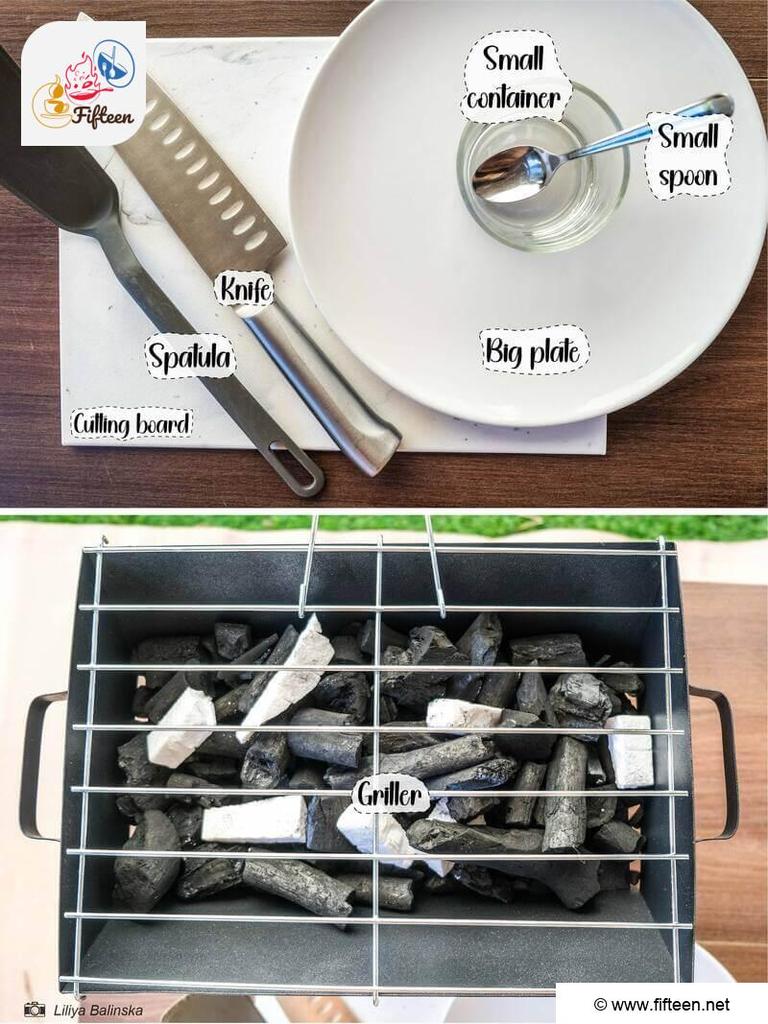
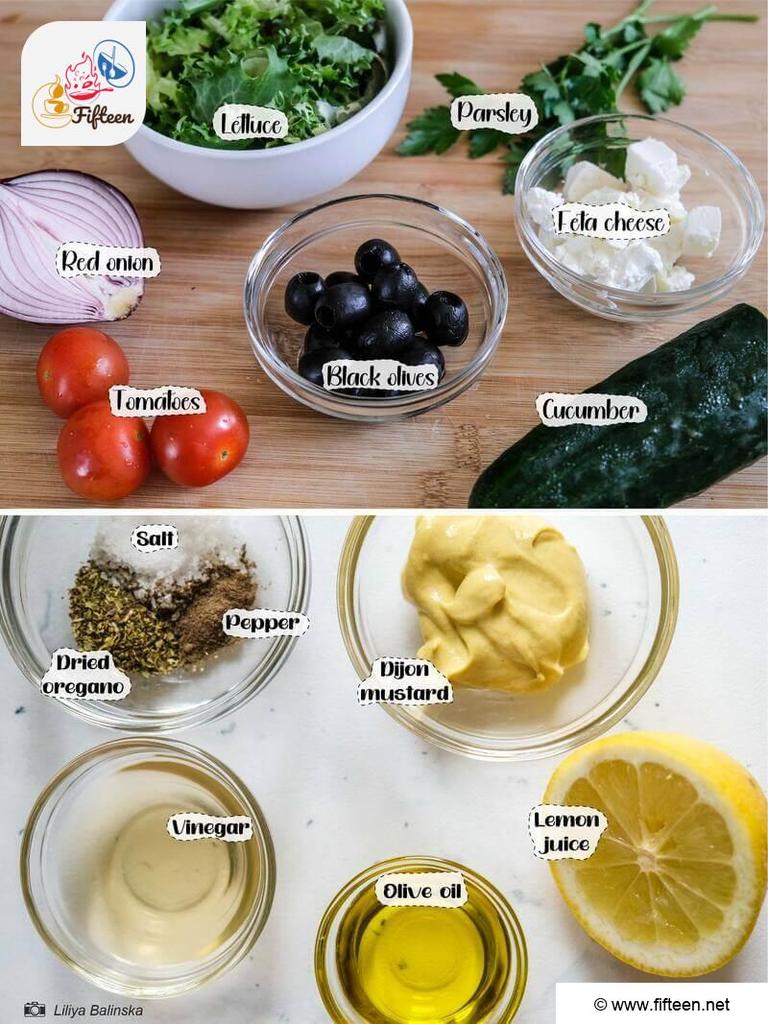
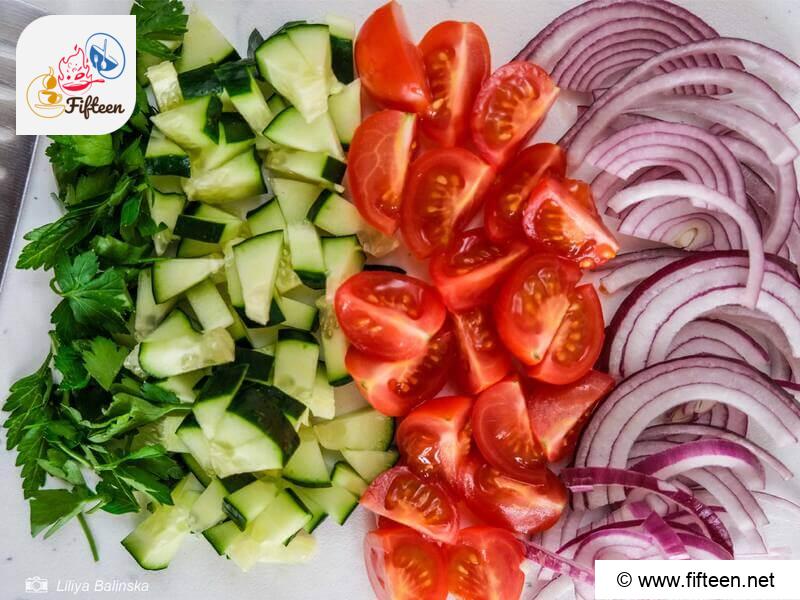
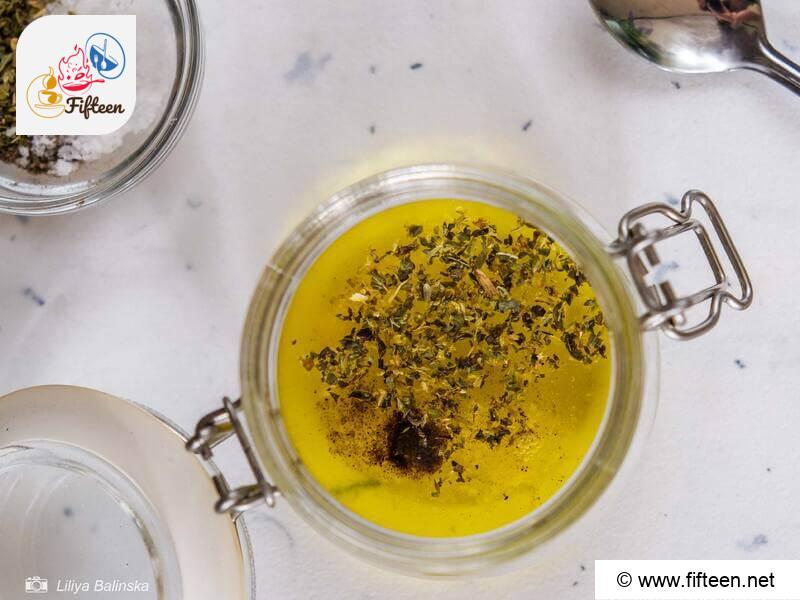

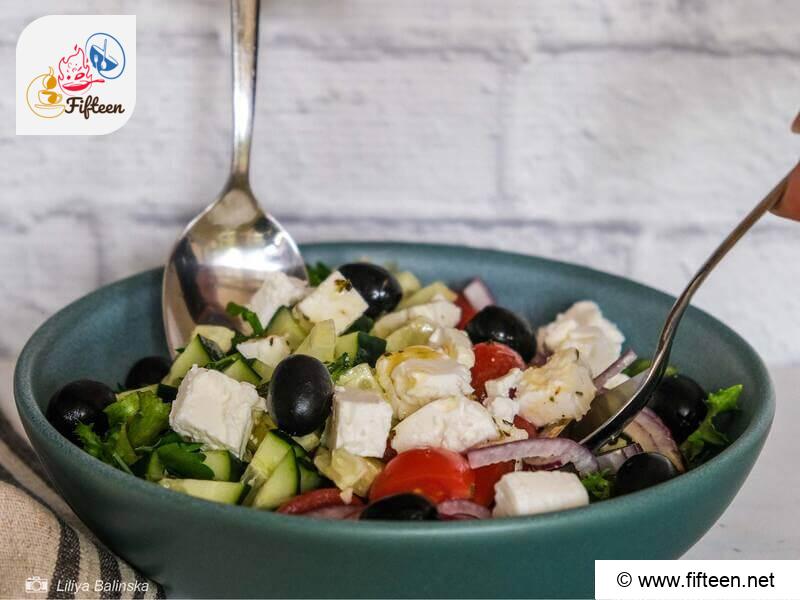

Liliya Balinska
Content Writer
Expertise
Content Writer, Home Cooking, Meal Planning, Recipe Development, Food Editor, Cooking-video Maker, Translator & Proofreader
Education
Universidade do Minho, Portugual
Nankai University, China
Universidade do Minho, Portugual
Escolas do Turismo de Portugal
Liliya Balinska, based in Lisbon, is a culinary content writer with an impressive educational background in Oriental and Intercultural Studies, complemented by a specialization in Culinary Arts. Her broad expertise enables her to cover a wide array of cuisines, from European classics to global dishes, captivating food lovers worldwide with her deep cultural knowledge and captivating writing style.